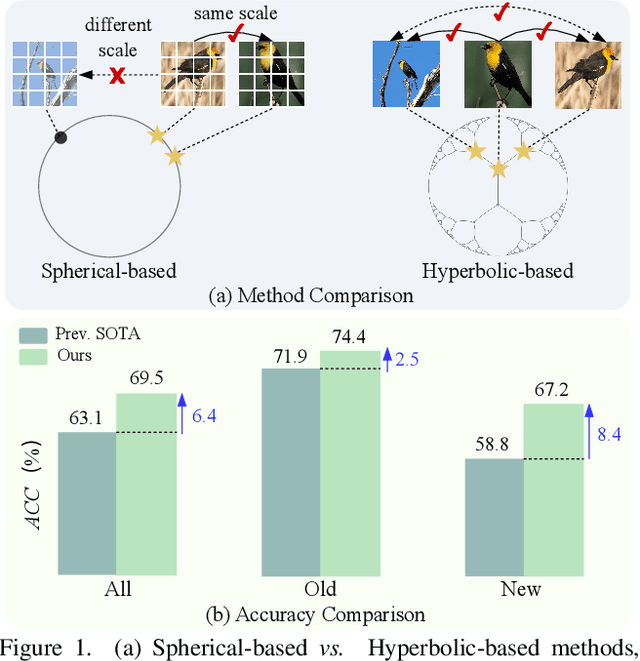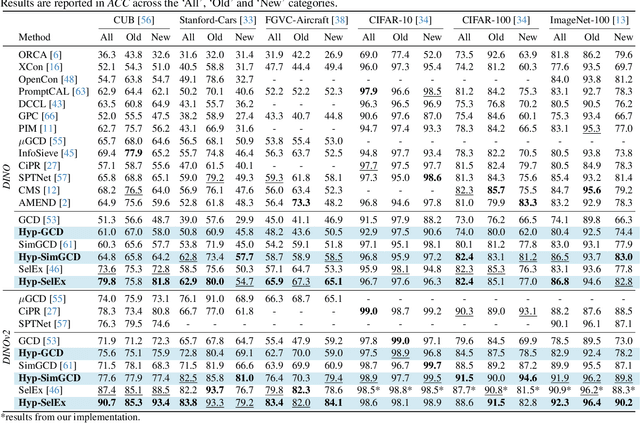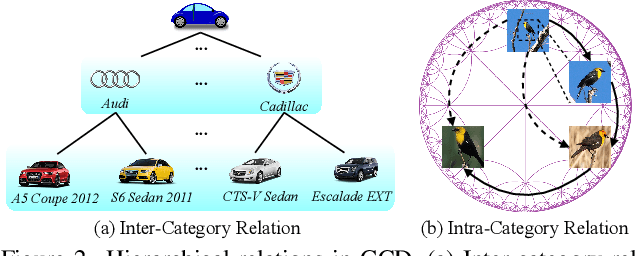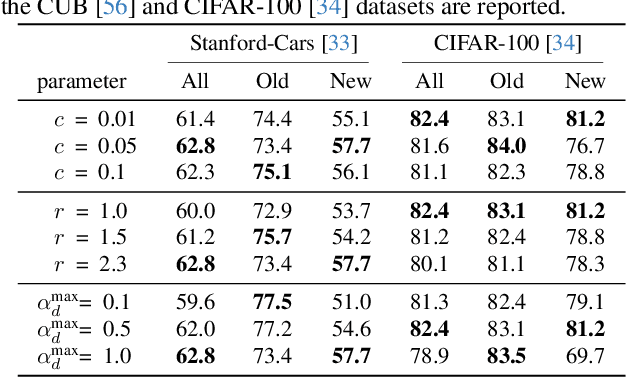Hyperbolic Category Discovery
Paper and Code
Apr 08, 2025



Generalized Category Discovery (GCD) is an intriguing open-world problem that has garnered increasing attention. Given a dataset that includes both labelled and unlabelled images, GCD aims to categorize all images in the unlabelled subset, regardless of whether they belong to known or unknown classes. In GCD, the common practice typically involves applying a spherical projection operator at the end of the self-supervised pretrained backbone, operating within Euclidean or spherical space. However, both of these spaces have been shown to be suboptimal for encoding samples that possesses hierarchical structures. In contrast, hyperbolic space exhibits exponential volume growth relative to radius, making it inherently strong at capturing the hierarchical structure of samples from both seen and unseen categories. Therefore, we propose to tackle the category discovery challenge in the hyperbolic space. We introduce HypCD, a simple \underline{Hyp}erbolic framework for learning hierarchy-aware representations and classifiers for generalized \underline{C}ategory \underline{D}iscovery. HypCD first transforms the Euclidean embedding space of the backbone network into hyperbolic space, facilitating subsequent representation and classification learning by considering both hyperbolic distance and the angle between samples. This approach is particularly helpful for knowledge transfer from known to unknown categories in GCD. We thoroughly evaluate HypCD on public GCD benchmarks, by applying it to various baseline and state-of-the-art methods, consistently achieving significant improvements.
 Add to Chrome
Add to Chrome Add to Firefox
Add to Firefox Add to Edge
Add to Edge